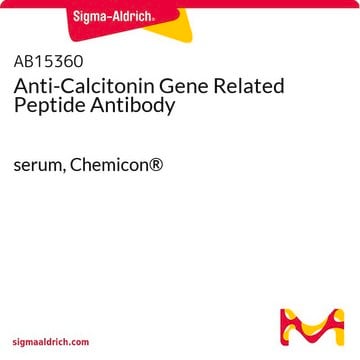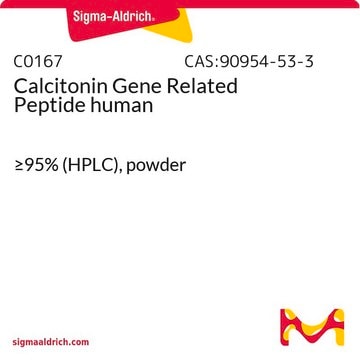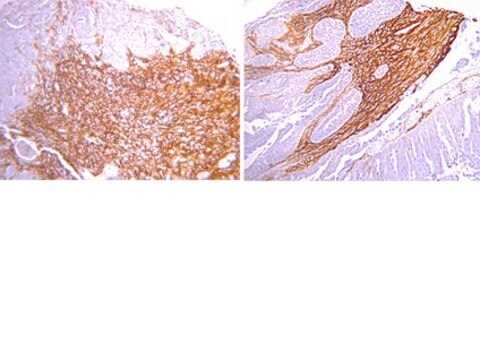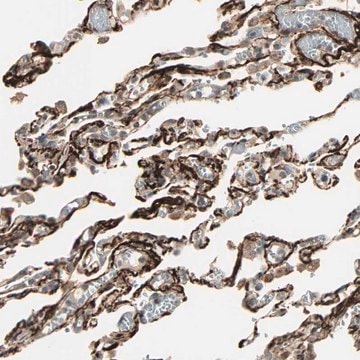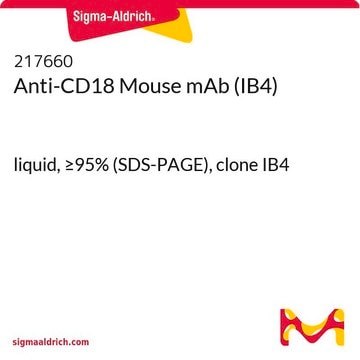C9487
Monoclonal Anti-Calcitonin Gene-Related Peptide antibody produced in mouse
clone CD8, purified immunoglobulin, buffered aqueous solution
Synonym(s):
Anti-CGRP
About This Item
Recommended Products
biological source
mouse
Quality Level
conjugate
unconjugated
antibody form
purified immunoglobulin
antibody product type
primary antibodies
clone
CD8, monoclonal
form
buffered aqueous solution
species reactivity
guinea pig, human
technique(s)
immunocytochemistry: suitable
immunohistochemistry (formalin-fixed, paraffin-embedded sections): 1:200-1:1,000 using ovenight incubation at 4 °C and sections that have been protease-digested or processed by high temperature antigen retrieval
indirect immunofluorescence: 1:500 using overnight incubation at 4 °C
isotype
IgG1
UniProt accession no.
shipped in
dry ice
storage temp.
−20°C
target post-translational modification
unmodified
Gene Information
human ... CALCA(796)
rat ... Calca(24241)
Looking for similar products? Visit Product Comparison Guide
General description
Monoclonal Anti-Calcitonin Gene-Related Peptide (CGRP) recognizes human and guinea pig CGRP. It does not cross react with rat CGRP.
Immunogen
Application
Physical form
Disclaimer
Not finding the right product?
Try our Product Selector Tool.
recommended
Storage Class Code
10 - Combustible liquids
WGK
WGK 1
Flash Point(F)
Not applicable
Flash Point(C)
Not applicable
Personal Protective Equipment
Certificates of Analysis (COA)
Search for Certificates of Analysis (COA) by entering the products Lot/Batch Number. Lot and Batch Numbers can be found on a product’s label following the words ‘Lot’ or ‘Batch’.
Already Own This Product?
Find documentation for the products that you have recently purchased in the Document Library.
Our team of scientists has experience in all areas of research including Life Science, Material Science, Chemical Synthesis, Chromatography, Analytical and many others.
Contact Technical Service


